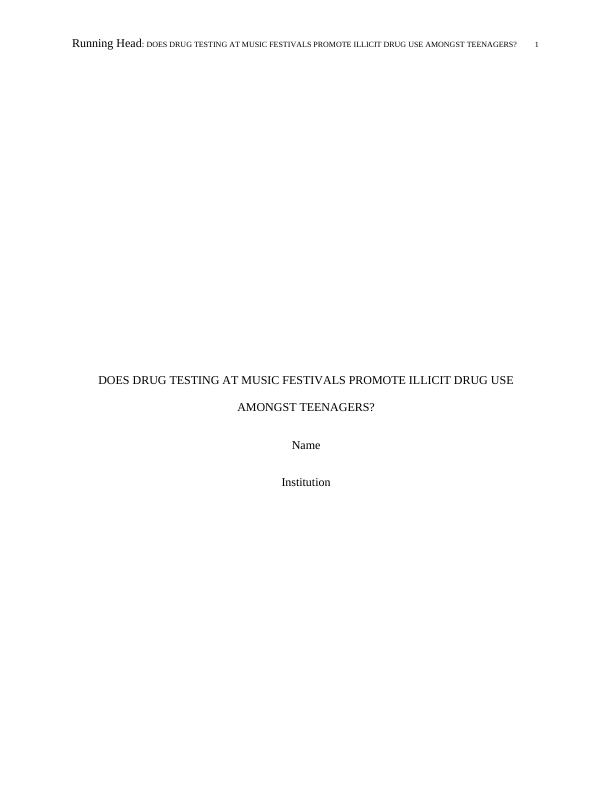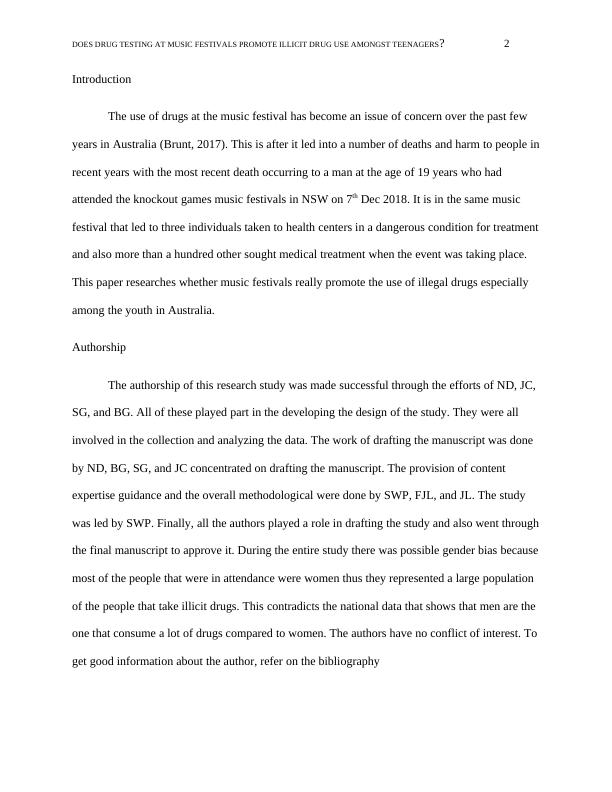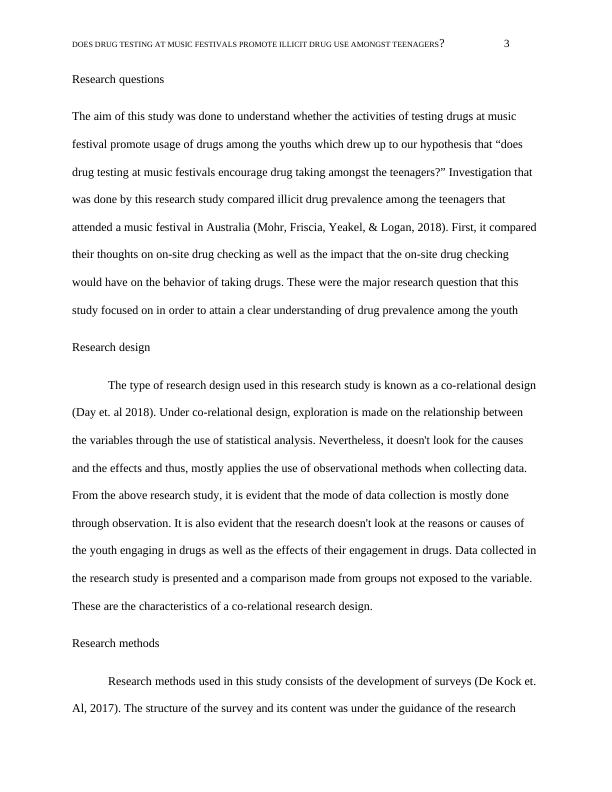Does Drug Testing at Music Festivals Promote Illicit Drug Use Amongst Teenagers?
Students are required to critically appraise a research paper and discuss the factors influencing the use of evidence in practice.
9 Pages2631 Words85 Views
Added on 2022-12-30
About This Document
This research study investigates whether drug testing at music festivals promotes the use of illegal drugs, particularly among teenagers in Australia. The study examines the prevalence of drug use among festival attendees and explores their attitudes towards on-site drug checking. The findings reveal high levels of drug consumption among teenagers at music festivals and suggest the need for proper drug checking services to reduce harm. The limitations of the study include the representativeness of the festival attendees and the gender bias in the sample. The conclusion highlights the potential of drug checking services in reducing harm to young people at music festivals.
Does Drug Testing at Music Festivals Promote Illicit Drug Use Amongst Teenagers?
Students are required to critically appraise a research paper and discuss the factors influencing the use of evidence in practice.
Added on 2022-12-30
ShareRelated Documents
End of preview
Want to access all the pages? Upload your documents or become a member.
Drug Testing in Music Festivals Promotes Illicit Drug Use Amongst Teenagers
|8
|1947
|408
Critique of Article on Music Festival Attendees' Illicit Drug Use
|8
|1949
|1
Critical Appraisal of Evidence on Music Festival Attendees' Illicit Drug Use
|6
|1532
|50
Critical Appraisal of Evidence on Music Festival Attendees’ Illicit Drug Use
|8
|1830
|296
Critical Appraisal of Evidence on Drug Testing Services in Music Festival
|7
|1586
|412
Critical Appraisal of Evidence on Music Festival Attendees’ Illicit Drug Use
|7
|1699
|145



